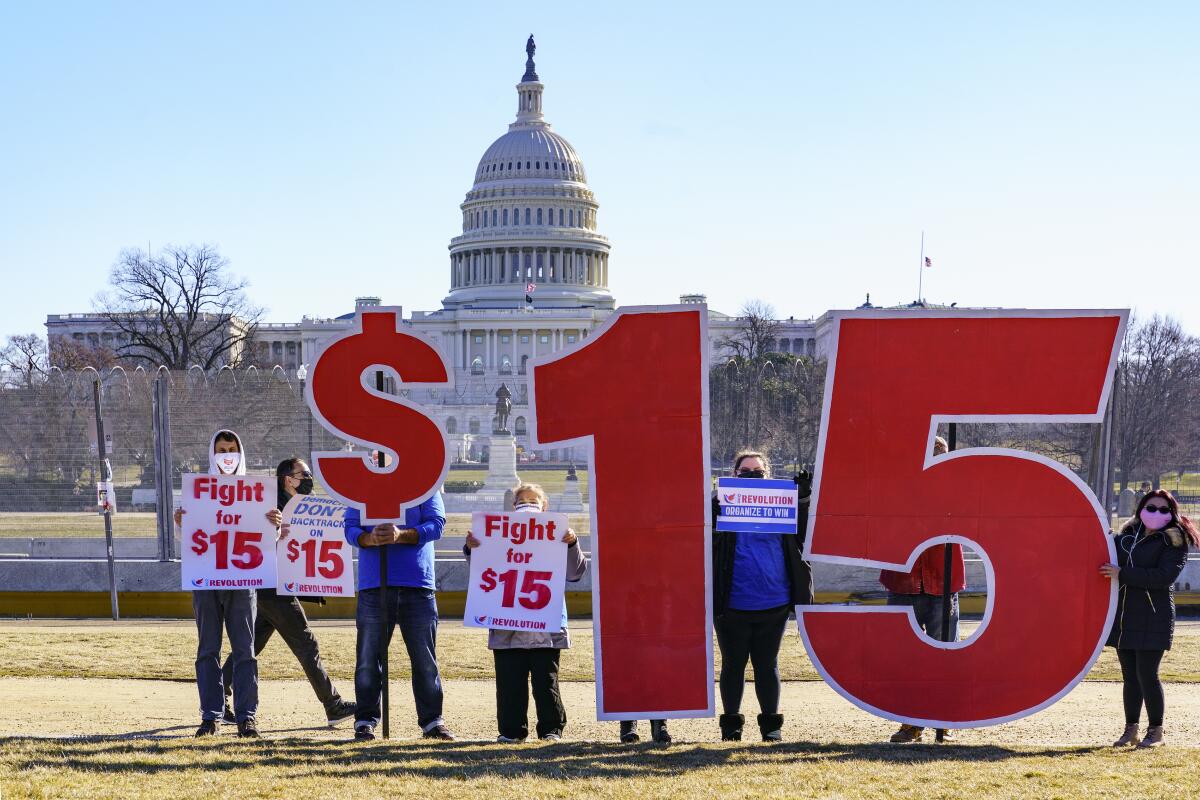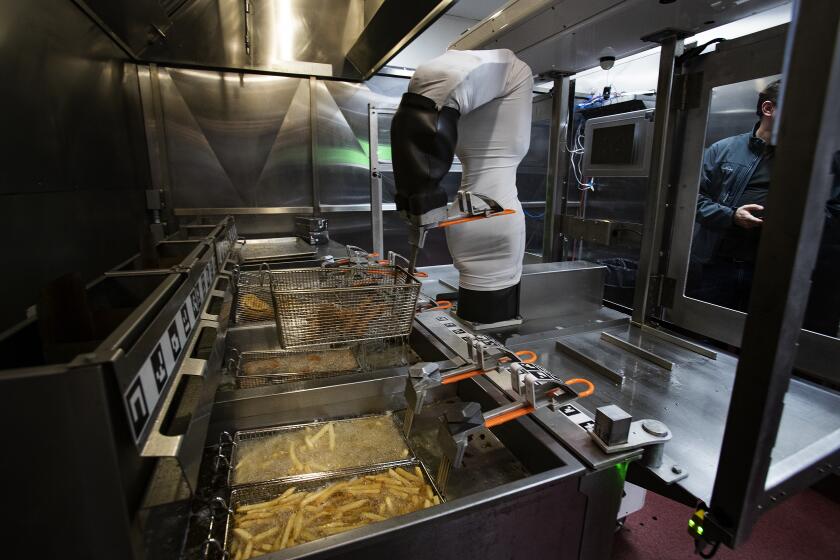Editorial: The federal minimum wage of $7.25 an hour is poverty pay. It’s time to raise it

- Share via
It’s been 15 years since workers earning the federal minimum wage got a raise. The cost of living has gone up more than 45% since then, with rents and home prices rising faster than incomes in most regions of the country. Yet the nation’s wage floor has stayed stuck at $7.25 an hour.
That is poverty pay, and an increase to the federal minimum wage is long overdue. It’s mind-boggling that Congress has gone so long without making even modest adjustments to help the lowest-paid workers. This is the longest stretch of time without an increase to the federal minimum wage since President Franklin D. Roosevelt signed the Fair Labor Standards Act in 1938, which established the right to a minimum wage.
One man’s experience points to an answer: He was able to rent a home not through employment alone but because he reached the age for Social Security and Medicare.
Certainly there have been some attempts to lift the wage floor. Most recently Democrats floated the Raise the Wage Act of 2023 that would have gradually increased minimum pay to $17 by 2028. Republicans countered with $11 phased in over four years. Neither proposal has moved forward.
As part of her economic plan, Vice President Kamala Harris has called on Congress to send her a bill raising the minimum wage. She supported $15 an hour during the 2020 election, but hasn’t named a number this time.
Half of U.S. families struggle to make ends meet, yet their incomes aren’t low enough to meet the official federal poverty threshold.
Donald Trump, not surprisingly, has sent conflicting messages on raising the minimum wage over the years. In 2016, he said he wanted to raise the federal rate to at least $10, but later said minimum wage hikes should be left to the states, which is effectively what’s happening now.
Some 30 states and the District of Columbia have enacted higher wage floors, and many cities, including Los Angeles, San Francisco and New York City, have adopted higher base pay than their states in recognition that it is more expensive to live in urban areas. In Seattle and some surrounding cities, the minimum wage is almost $20 an hour.
Still, 20 states, bowing to politics and business lobbying, have kept the federal $7.25 an hour as their pay floor. That’s why Congress needs to act, and the next president should commit to signing a wage hike.
Restaurants still need humans to do much of the labor. Working people deserve to have their voices heard in determining how, when or whether AI and automation should be used.
The minimum wage is supposed to ensure workers can afford the basic necessities. It’s hard to imagine, even in less expensive regions, how an adult can pay for housing, food, healthcare and transportation on a full-time minimum wage salary of $15,000 a year. That is below the poverty line for a single parent with one child. When working people earn so little that they could qualify for Medicaid and food stamps, taxpayers end up subsidizing their employers.
If the federal minimum wage had kept up with inflation, it would be close to $11 an hour now. An estimated 5 million workers earn less than $11 an hour. And let’s not kid ourselves — while earning $11 an hour working full time would lift a single parent out of poverty, it’s probably not enough to pay the bills and save for a rainy day.
There will always be debate over the correct level at which to set the minimum wage to help the most workers with the fewest negative consequences, which could include businesses cutting low-wage jobs to save money. Yet it should be clear that $7.25 is now woefully low and no longer a fair wage floor. Everyone benefits when working people earn a decent living, and raising the federal minimum wage is essential.
More to Read
A cure for the common opinion
Get thought-provoking perspectives with our weekly newsletter.
You may occasionally receive promotional content from the Los Angeles Times.













